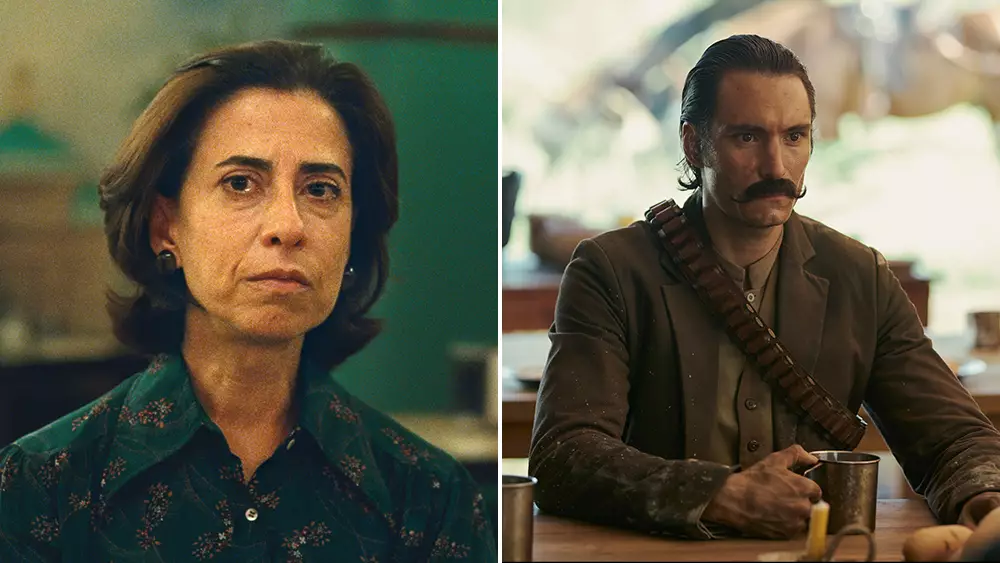The Platino Awards, an annual spectacle recognizing the triumphs of Ibero-American cinema and television, recently marked its twelfth edition in Madrid, and the night was ablaze with moments that highlighted not just talent, but the dynamic and colorful cultural interconnectedness that this artistic community represents. Unlike any routine awards show, the Platino Awards vividly encapsulated the essence of Latin artistry, draped in a tapestry of powerful performances that resonate across borders and histories.
At the forefront of this celebration was the groundbreaking Brazilian film, *I’m Still Here*, directed by Walter Salles. Taking home three prestigious awards, including Best Ibero-American Fiction Film and Best Director, it served as a stark reminder of Latin America’s compelling storytelling capabilities. Salles, though absent from the ceremony, delivered a cinematic gift that weaves narratives of hope and resilience, proving once again that cinema is a powerful medium for social commentary and reflection. The same holds true for star Fernanda Torres, whose win in the Best Female Performance category makes it clear: the characters she portrays are not just depicted; they breathe life into the struggles and triumphs of real people.
Netflix’s Colombian Charm Takes Center Stage
Equally impressive was the success of the Colombian adaptation of Gabriel García Márquez’s masterpiece, *One Hundred Years of Solitude*. With accolades peppered throughout the night, including Best Series and a slew of acting awards, Netflix’s decision to adapt this iconic novel marks a pivotal moment in both streaming media and literary adaptation. It underscores the necessity of representation in diverse storytelling. In a world that often homogenizes culture, the Platino Awards herald funds and platforms for stories that prioritize cultural specificity, aiming to share the richness of Latin American narratives while reaching global audiences.
The success of *One Hundred Years of Solitude* not only serves as a win for Netflix but also symbolizes a broader shift in the entertainment landscape. It is a declaration that critically acclaimed literature can indeed transition to dynamic onscreen adaptations with adept sensitivity and respect for the source material. As viewership habits evolve and audiences become more globally inclined, such innovative endeavors must be embraced as a means of bridging communities and fostering understanding.
The Vibrance of Recognition
In the backdrop of these monumental awards was Eva Longoria, who accepted the Platinum of Honor Award with an impassioned speech that rattled the foundations of the venue. Her words resonated deeply, reflecting on her identity as a Mexican American and the shared cultural pride that binds Latin artists from varied backgrounds. Longoria’s heartfelt tribute to the sisterhood between Mexico and Spain was not merely a personal acknowledgment; it was a call for unity in the continued fight for representation in Hollywood, promoting a narrative that embraces diversity rather than shies from it.
Her proclamation, “My soul is Mexican,” underscores the profound connection individuals have with their heritage, shaping not just identity but the very stories that should be told. Within the fabric of Ibero-American cinema lies an immense potential for reclaiming narratives that reflect the plurality of experience. It’s a cultural renaissance that offers a mirror to society, reflecting both its beauty and imperfection.
Implications of Success Beyond the Stage
But let’s not gloss over the question of implications. The Platino Awards is more than just a glittering night of accolades; it’s emblematic of the battles still faced by Latin filmmakers in an industry that too often operates based on marketability over authenticity. Despite a night of celebration, one must remain critical of the structures that govern these awards, questioning whether this recognition translates into substantial opportunities for broader representation in future projects.
Awards can illuminate talent but are not a panacea for the systemic issues entrenched within Hollywood. The night is a stepping stone, but it requires relentless advocacy for equity in storytelling, investment in diverse voices, and a sustained commitment to ensure that films and series reflecting the richness of Ibero-American culture surround the mainstream dialogue. The celebration of excellence at the Platino Awards should inspire actionable change rather than be an end in itself, pushing both audiences and creators to demand and champion stories that capture the nuances of human experience.


Leave a Reply